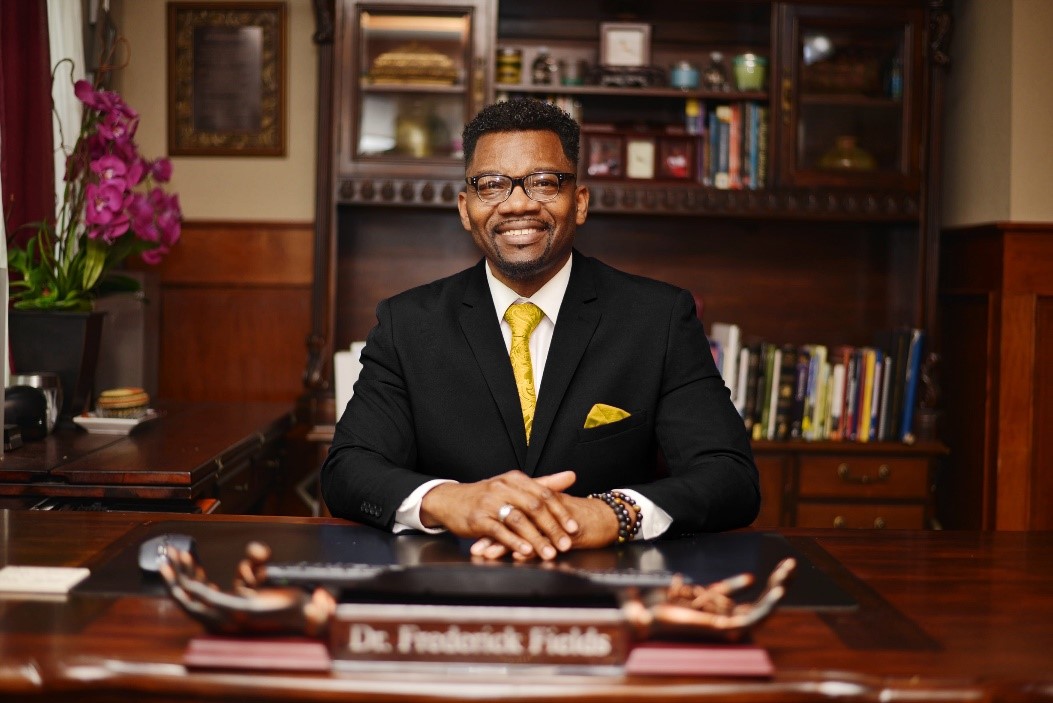Industry: Education
We must make a change by rethinking policies that affect students and families. At the same time, establishing and sustaining relationships with Millennial and Generation Z parents.
How to Shift Policies and Practices to Do No Harm: A Post-Pandemic Conversations with Educators and Communities that they Serve In

According to the most recent analysis of public data by ProPublica, White students are 1.8 times more likely to face suspensions than 3.9 times as Black students nationally. In some states and districts, it is even higher such as Connecticut (6 times), District of Columbia (11.7 times), Minnesota (6.5 times), and Wisconsin (7.5 times). Additionally, according to a 2018 analysis by the United States Government Accountability Office, Black students were overrepresented in every punishment measure evaluated regardless of the poverty level or school type.
This type of consistent data underscores a systemic and seismic pushout of African American male students, which propels them on a possible trajectory to have disproportionate contact with law enforcement agencies. It also augments disengagement, which leads to dropout and possible incarceration. As educators, we must embrace all systems and pedagogies available to disrupt the cycle of punitive punishments to mitigate the cradle-to-school-to-prison pipeline, which may mean taking an intense look at the policies and practices that increase disproportionate harm to Black and Brown students.
Professor Ancy Annamma at Stanford University has noted that schools criminalize children and foreclose on their opportunities. Something completely contrary to education’s intended purpose. Additionally, criminalization toward black and brown children can cause lifelong and damaging effects. Dr. Fields, author of Educator’s Strategies for Effective Relationships and Conversations with Millennials and Generations Z Parents, suggests that to address the criminalization and foreclosure, we must be mindful, intentional, and compassionate about how policies impact students.
When reviewing policies and practices, we must ensure we have cultures and climates at the school level that are welcoming and operating in manners that do not resemble our correctional institutions. Too often, we find that the logics of schools and those of prisons are too closely related. Schools and prisons have direct hallway protocols, restrictive bathrooms, cafeterias, transportation, recreational periods, law enforcement officers, surveillance cameras, and metal detectors. Honestly, in some of our schools, students are reminded daily that they are in a de facto prison in the space where they should be educated. We know that more inclusive and less punitive environments lead to substantially better and more productive learning outcomes.
We must be careful not to put systems in place that appear to be designed to weed out or discriminate against students of color and find ways to help them to feel entirely accepted in all educational spaces. We have to be conscious of biases that cause us to target or judge students because of the way they dress, their hair, sexual orientation/identity. And more.
Bad practices cannot continue in education. Educational harm is in direct conflict with our stated mission. Therefore, we must provide training focused on relationship building with millennial parents and Generation X students and increase family and community engagement to level the playing field if our goal is to get students to achieve more. We should be mindful that our discipline measures should not work against that goal. Sending them home every time they sneeze or voice an opinion contrary to ours will only cause students to miss out on valuable instruction.
Dr. Thalia Gonzalez, a nationally renowned expert in the practice of restorative justice, posits that a substantial amount of discourse surrounding discipline is focused solely on the fact that, over an extended time, black students are more likely to face punishment and pushout, which can also cause disproportionate health effects. She notes that data show high school graduation can increase the life span by as much as 15 years. She also shares research that illustrates how consistent suspensions from school environments can cause symptoms that resemble post-traumatic stress disorder. Some students internalize school rejection or feelings of being targeted to the point of considering suicide as an escape.
So the question remains, “How do we make the shift, and how do we disrupt these practices that continue to persist? Schools across the country will have to take a systematic approach to undo current structures that harm. Structures cannot rely on compliance and punitive discipline because it is consistently failing kids, and it is our moral obligation to fix the broken system and hold it accountable. In an ideal world, many would suggest that transformation happens from the bottom up. However, educators must take the necessary steps NOW to dismantle harmful practices. We must build school policies around the restorative approach, which will impede the ability of administrators to take the easy way out (pushing students out). We can do this, but we must be willing to have no missed conversations and put the problem on the table for deep internal conversations with a positive goal of student success as the ONLY outcome. This shift must first be systemic and personal for every person in the educational arena for real change to transpire. Each educator must be willing to ask a tough question, “What is my DNA to the problem, and what am I willing to do to mitigate the damage caused?” Once we internalize that question, it is up to the man in the mirror to make the change.
The world has changed, and it is still evolving. The antiquated punitive practices of the past do not align with the current generation’s way of thinking. Therefore, as educators, we must embrace the change, eliminate our hard wiring and be receptive to the world as it is versus how it was. It is simple, “the way that used to be is not anymore.” The excellent practices of the past that are still relevant and support student learning should still be part of how we educate; however, as we introduce them to parents and students today, we must be prepared to do so in a manner in which they will be received. We must refine our delivery and recognize that our paraverbals are crucial when discussing any changes or suggesting other possibilities to the parents and students we serve today in terms of discipline practices etc.; it is not what we say, but how we say it. If we choose our words carefully and communicate emphatically, we will have a better chance of reaching the parents and students of today to get them where we would ultimately like them to be. When this happens, we can then end this era of disproportionate suspensions and mass incarceration and focus on unlocking minds and helping black students recognize that they do matter.
About the Author
Dr. Frederick Fields is an educational consultant and author of Educator’s Strategies for Effective Relationships and Conversations with Millennials and Generation Z Parents. He holds a Doctorate of Education from Fischler School of Education and Human Services at Nova Southeastern University. He currently serves as Senior Director of Student Services for an urban midwestern school district, where he oversees the Counseling & College/Workshop Readiness Department, Student Health Services, Student Hearing Office, Alternative Learning Programs, Student Registration, Homeless Education Program, Student Attendance, Dropout Prevention/Truancy, Care Program (affordable before and after school child care), Mental Health Departments, and Juvenile Detention Coordinators.
Armed with over thirty years of teaching, administration, community engagement, training, and leadership skills, he serves passion and fidelity. All in hopes of ensuring that every student, family, and community receives the best educational experience. All while working tirelessly to bridge the gap between generations and formulating winning strategies on education and customer service in the post-pandemic era.
References:
Annamma, S.A. (2017). The Pedagogy of Pathologization: Dis/abled Girls of Color in the School-prison Nexus (1st ed.). Routledge. https://doi.org/10.4324/9781315523057
Groeger, L. V., Waldman, A., & Eads, D. (2018, October 16). Miseducation: Is There Racial Inequality at Your School? ProPublica. https://projects.propublica.org/miseducation/
United States Government Accountability Office. (2018). K-12 Education: Discipline Disparities for Black Students, Boys, and Students with Disabilities R (Ser. GAO-18-258`). GAO.
Media Contact
Company Name: FLF Educational Solutions
Contact Person: Dr. Fredrick Fields
Email: Send Email
Phone: 5019525931
Address:1811 Wellington Woods
City: Little Rock
State: Arkansas
Country: United States
Website: flfeducationalsolutions.com

